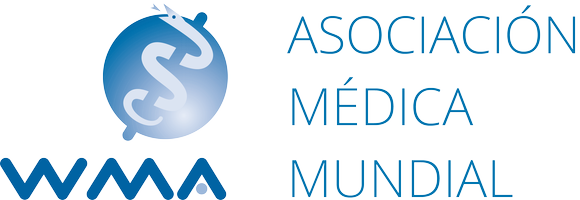Nagel
PDF Upload
Dr. Saskia K. Nagel
Institute of Cognitive Science
University of Osnabrück
Considering research on neuro-
enhancement in the next revision of
the Declaration of Helsinki
26.06.2012 WMA Satellite
Overview
• Trend: Neuro-enhancement
• What is it?
• Prevalence
• Ethical discussion
• Effectiveness and safety
• Relevance for the Declaration of Helsinki
• General concern
• Challenge to weigh risks and benefits
• Discussion
26.06.2012 WMA Satellite
Neuro-enhancement
Improvement of cognitive or emotional
capacities in healthy people without
therapeutic or preventive intention with
pharmacological or neurotechnological
means
26.06.2012 WMA Satellite
Neuro-enhancement
What and how?
Goals: Means:
physical capacities cognitive capacities
longevity and
symptoms of aging
affectice functions
social
and moral capacities
deep brain stimulation
neuro-
protheses
magnetic
stimulation
psychopharmacology
Brain-machine
Interfaces
spiritual capacities
ultrasound
Just a small selection
To offer:
• Vinpocetine – a cerebral enhancer;
• Get SmartTM- brain formula: Increase your IQ
• Idebenone – the ultimate anti-aging drug?
• SAMe – the nutrient for mood, liver, heart, joint and brain protection
• Piracetam – the original nootropic
• NADH – the supervitamin body and mind energizer
• Growth Hormone – the real «fountain of youth!“
• 5-HTP – Prozac’s true alternative
• The energy program at a glance – tired of being tired?
• Life Extension Mix – just 14 capsules a day!
• Centrophenoxine – the anti-aging brain
• Galantamines – opens your memory, rescues brain cells: old becomes young
• Pregnenolone – reducing stress and increasing productivity
• Prescription not required … (http://smart-drugs.com)
Prevalence
• Little accurate data available
• Up to 25% of American students use psychostimulants (range
3-25% in colleges) (McCabe et al. 2004, 2005)
• 46% increase in ADHD prescriptions from 2002-2010 (Chai et al. 2012)
• Estimates:
• 5% of the working population in Germany use pharmaceutical drugs
to enhance their cognitive functions
• 2% of surveyed German students use drugs to compensate for stress
and increase performance (Franke et al. 2011)
• Non-therapeutic use and prescription of drugs happens mainly
off-label
• Availability of these prescription medications rises -> rates of
medication diversion and misuse rise as well
• Note: Assuming and communicating high prevalence numbers
might lead to a self-fulfilling prophecy
Ethical debate
• Neuro-enhancement is growing trend that is vividly
debated regarding ethical and social questions
• Justice & fairness
• Coercion & pressure for conformity
• Open and subtle pressures in working and personal life
• Value of the normal
• Personality changes
• Naturalness
• Authenticity
• Rarely considered:
• Effectiveness, safety, side-effects…
26.06.2012 WMA Satellite
Effectiveness
• Expectations regarding the effectiveness exceed actual
effects
• Stimulants (methylphenidate; modafinil)
• Mainly effects on memory, some effects on executive functions in
sleep deprived subjects (Repantis et al. 2010)
• Antidepressants (mainly SSRIs)
• Uncertainty regarding size and robustness of effects
• Dependence on dosage, individual differences, specifics of the task
• The claimed and assumed benefits are often exaggerated
26.06.2012 WMA Satellite
Side-effects
• US FDA warning on the packets of methylphenidate:
• «amphetamines have a high potential for abuse. Administration of
amphetamines for prolonged periods of time may lead to drug
dependence …Misuse of amphetamine may cause sudden death and
serious cardiovascular adverse effects.“
• Risk of addiction
• Highly selective, direct effects on dopamine release (e.g. by
psychostimulants methylphenidate and modafinil)
• Habitized drug intake (counter-regulatory neuroadaptive processes
are induced and strengthened)
• „The immediate and long-term risks to individuals seeking
cognitive enhancement remain unknown.“ (Smith and Farah 2011)
26.06.2012 WMA Satellite
Empirical studies are needed – if wanted
• Public interest contrasts with paucity of data on specific enhancement
effects of available agents
• Decision of healthy individuals on the usage of enhancement
should be based on exhaustive information provided by
scientifically valid studies
• Investigating enhancement usage
• Dosages, length of intake, and risks might differ
• Definition of efficacy of enhancement intervention must be clarified
• Large longitudinal studies
• Large samples
• Comparative designs
26.06.2012 WMA Satellite
Why considering this?
• Challenge to the purpose and scope of biomedical
research and medical practice
• §7 of the current DoH version:
• „The primary purpose of medical research involving human
subjects is to understand the causes, development and effects of
diseases and improve preventive, diagnostic and therapeutic
interventions (methods, procedures and treatments). Even the
best current interventions must be evaluated continually through
research for their safety, effectiveness, efficiency, accessibility
and quality.“
• Reconsider the basic assumptions of justifying medical
research
26.06.2012 WMA Satellite
Risk-benefit balancing anew
• “In medical practice and in medical research, most interventions involve risks
and burdens.“ (§8)
• “Medical research involving human subjects may only be conducted if the
importance of the objective outweighs the inherent risks and burdens to the
research subjects.“ (§ 21)
• What are acceptable risks?
• When is it justified to expose human beings to potential harm?
• Risk-benefit balance for research on enhancement
• Which ratio would be acceptable?
• How to weigh societal benefits against individual risks?
• Potentially unfavorable ratio given side-effects BUT high demand given social
trend
• Research on enhancement in the healthy not as essential as research on disease
• Consider prioritization of healthcare; responsible use of finite resources
• Legitimacy of this research needs scrutiny and “regulation”
26.06.2012 WMA Satellite
Vulnerable populations
• Children and adolescents show particularly high increase
in usage and acceptance
• Studies on enhancement are lacking
• Off-label use, diversion, and social pressure raise
• Specific regulations for enhancement in pediatric
populations necessary (e.g. for practitioners; Graf et al. in
progress)
26.06.2012 WMA Satellite
Conclusion
• Enhancement is prevalent despite paucity of data on
effectiveness and safety
• Empirical studies on enhancement are not covered by
current version of Declaration of Helsinki
• Deliberation of general stance and adequate risk-benefit
balancing is needed in the context of regulating biomedical
research
• Decisions will strongly influence ethical debate
• Suggestion: No ban, but cautious positioning
26.06.2012 WMA Satellite
Thank you for your attention!
26.06.2012 WMA Satellite
